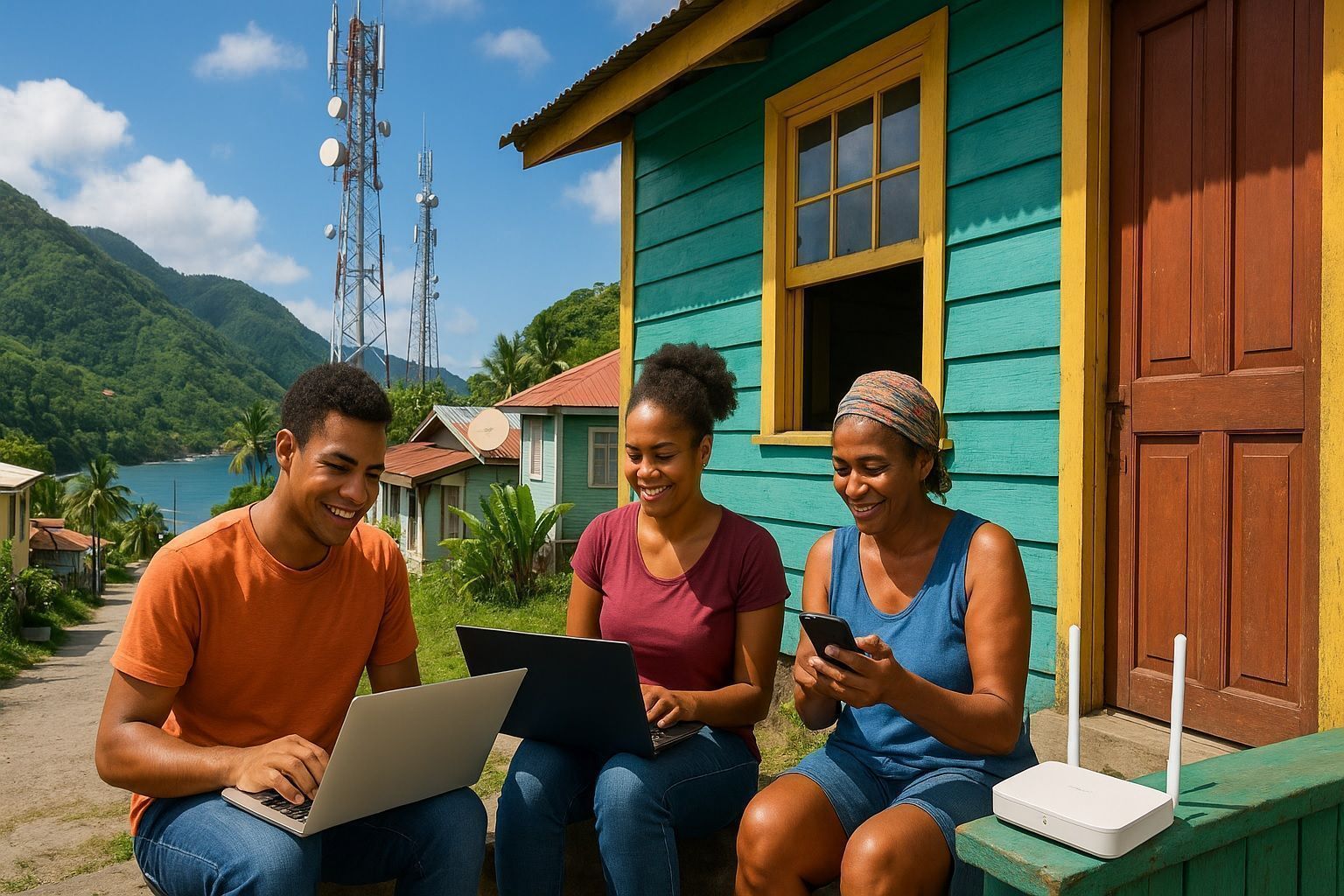
Dominica: Internet Infrastructure and Access Technologies
Dominica is a landing point on the 3,000-km Southern Caribbean Fiber (SCF) ring linking 15 Eastern Caribbean islands. On-island, Flow (formerly Cable & Wireless) provides fixed DSL and coaxial/cable service, while Digicel Play offers cable/FTTP over an upgraded HFC network.